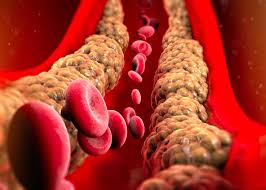The Benefits of Intermittent Fasting on Heart Health
Intermittent fasting in the context of heart health has gained widespread popularity as a health and wellness strategy, with numerous benefits beyond weight loss. One of the most compelling advantages of [Intermittent fasting] is its positive impact on heart health. With cardiovascular diseases being the leading cause of mortality worldwide, adopting lifestyle changes that promote heart health is crucial. Scientific studies have shown that intermittent fasting can significantly reduce risk factors associated with heart disease, including high blood pressure, inflammation, cholesterol levels, and insulin resistance.

Understanding Intermittent Fasting
Intermittent fasting is an eating pattern that cycles between periods of fasting and eating. Unlike traditional diets that focus on what to eat, IF focuses on when to eat. The most common IF methods include:
- The 16/8 Method: Involves fasting for 16 hours and eating within an 8-hour window.
- The 5:2 Diet: Consists of eating normally for five days and restricting calorie intake to 500–600 calories on two non-consecutive days.
- Alternate-Day Fasting: Alternates between fasting and regular eating every other day.
- The 24-Hour Fast: Requires fasting for a full 24 hours once or twice a week.
These fasting methods work by giving the body a break from digestion, allowing it to shift into repair mode and optimize metabolic functions, which in turn benefits the cardiovascular system.
How Intermittent Fasting Benefits Heart Health
1. Lowers Blood Pressure
Hypertension (high blood pressure) is a major risk factor for heart disease. Studies suggest that intermittent fasting helps regulate blood pressure by improving vascular function and reducing oxidative stress. Fasting promotes the production of nitric oxide, which relaxes blood vessels, improving circulation and reducing strain on the heart.

2. Reduces Bad Cholesterol (LDL) and Triglycerides
High levels of low-density lipoprotein (LDL) cholesterol and triglycerides contribute to atherosclerosis (the hardening of arteries), increasing the risk of heart disease and stroke. IF has been found to lower LDL cholesterol and triglycerides, enhancing heart health. Research indicates that fasting periods encourage the body to use stored fat for energy, reducing overall lipid levels in the blood.

3. Improves Insulin Sensitivity and Reduces Risk of Type 2 Diabetes
Insulin resistance is a precursor to type 2 diabetes, which significantly increases heart disease risk. Intermittent fasting enhances insulin sensitivity, meaning the body can use glucose more effectively, reducing the likelihood of developing diabetes. Lower insulin levels during fasting periods help prevent excessive sugar buildup in the bloodstream, reducing inflammation and vascular damage.

4. Reduces Inflammation
Chronic inflammation is a key factor in the development of cardiovascular diseases. IF lowers inflammatory markers, such as C-reactive protein (CRP) and interleukin-6 (IL-6), which are linked to atherosclerosis and other heart-related conditions. Fasting activates autophagy, a cellular process that removes damaged cells and reduces inflammation, protecting heart tissue from damage.

5. Promotes Weight Loss and Healthy Body Composition
Obesity is a well-known risk factor for heart disease. By reducing calorie intake and boosting metabolism, intermittent fasting supports weight loss and helps maintain a healthy body composition. Losing excess weight reduces strain on the heart, lowers cholesterol levels, and improves overall cardiovascular function.

6. Enhances Heart Rate Variability (HRV) and Longevity
Heart rate variability (HRV) is an indicator of heart health and autonomic nervous system balance. Studies suggest that intermittent fasting can improve HRV, enhancing the body’s ability to adapt to stress and reducing the risk of arrhythmias (irregular heartbeats). Additionally, fasting has been linked to increased longevity, as it mimics some of the effects of calorie restriction, a well-known anti-aging strategy that benefits cardiovascular health.

Tips for Incorporating Intermittent Fasting Safely
- Start Gradually: Begin with shorter fasting periods and gradually extend the duration to allow your body to adapt.
- Stay Hydrated: Drink plenty of water, herbal teas, or black coffee during fasting periods to stay hydrated.
- Eat Nutrient-Dense Foods: When breaking a fast, consume whole, unprocessed foods rich in fiber, healthy fats, and lean proteins.
- Avoid Overeating: Resist the temptation to binge-eat after fasting; opt for balanced meals to sustain energy and health.
- Listen to Your Body: If you experience dizziness, fatigue, or other adverse effects, adjust your fasting schedule or seek medical advice.
Conclusion
Intermittent fasting offers numerous benefits for heart health, from reducing blood pressure and cholesterol levels to improving insulin sensitivity and inflammation control. As a natural and effective lifestyle approach, IF can play a crucial role in preventing cardiovascular diseases and promoting overall well-being. However, it is essential to tailor fasting methods to individual needs and consult a healthcare provider, especially for those with pre-existing medical conditions. By integrating intermittent fasting into a balanced lifestyle, individuals can enhance their heart health and longevity while enjoying the broader benefits of improved metabolic function and well-being.
